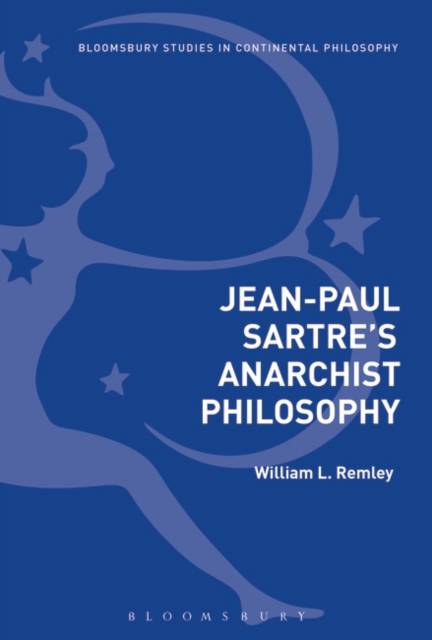
Je cadeautjes zeker op tijd in huis hebben voor de feestdagen? Kom langs in onze winkels en vind het perfecte geschenk!
- Afhalen na 1 uur in een winkel met voorraad
- Gratis thuislevering in België vanaf € 30
- Ruim aanbod met 7 miljoen producten
Je cadeautjes zeker op tijd in huis hebben voor de feestdagen? Kom langs in onze winkels en vind het perfecte geschenk!
- Afhalen na 1 uur in een winkel met voorraad
- Gratis thuislevering in België vanaf € 30
- Ruim aanbod met 7 miljoen producten
Zoeken
Omschrijving
The influence of anarchists such as Proudhon and Bakunin is apparent in Jean-Paul Sartres' political writings, from his early works of the 1920s to Critique of Dialectical Reason, his largest political piece. Yet, scholarly debate overwhelmingly concludes that his political philosophy is a Marxist one. In this landmark study, William L. Remley sheds new light on the crucial role of anarchism in Sartre's writing, arguing that it fundamentally underpins the body of his political work.
Sartre's political philosophy has been infrequently studied and neglected in recent years. Introducing newly translated material from his early oeuvre, as well as providing a fresh perspective on his colossal Critique of Dialectical Reason, this book is a timely re-invigoration of this topic.
It is only in understanding Sartre's anarchism that one can appreciate the full meaning not only of the Critique, but of Sartre's entire political philosophy. This book sets forth an entirely new approach to Sartre's political philosophy by arguing that it espouses a far more radical anarchist position than has been previously attributed to it. In doing so, Jean-Paul Sartre's Anarchist Philosophy not only fills an important gap in Sartre scholarship but also initiates a much needed revision of twentieth century thought from an anarchist perspective.
Sartre's political philosophy has been infrequently studied and neglected in recent years. Introducing newly translated material from his early oeuvre, as well as providing a fresh perspective on his colossal Critique of Dialectical Reason, this book is a timely re-invigoration of this topic.
It is only in understanding Sartre's anarchism that one can appreciate the full meaning not only of the Critique, but of Sartre's entire political philosophy. This book sets forth an entirely new approach to Sartre's political philosophy by arguing that it espouses a far more radical anarchist position than has been previously attributed to it. In doing so, Jean-Paul Sartre's Anarchist Philosophy not only fills an important gap in Sartre scholarship but also initiates a much needed revision of twentieth century thought from an anarchist perspective.
Specificaties
Betrokkenen
- Auteur(s):
- Uitgeverij:
Inhoud
- Aantal bladzijden:
- 272
- Taal:
- Engels
- Reeks:
Eigenschappen
- Productcode (EAN):
- 9781350048249
- Verschijningsdatum:
- 22/02/2018
- Uitvoering:
- Hardcover
- Formaat:
- Genaaid
- Afmetingen:
- 156 mm x 234 mm
- Gewicht:
- 576 g

Alleen bij Standaard Boekhandel
+ 542 punten op je klantenkaart van Standaard Boekhandel
Beoordelingen
We publiceren alleen reviews die voldoen aan de voorwaarden voor reviews. Bekijk onze voorwaarden voor reviews.









